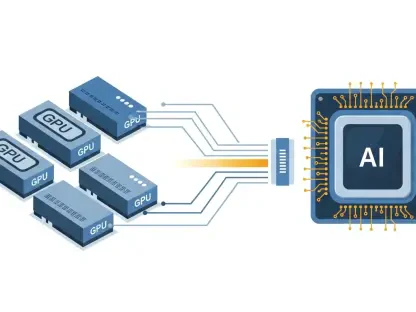The European Union’s Artificial Intelligence Act is set to shape a new era where businesses and AI are regulated by a comprehensive legal framework, much like the impact made by the GDPR. This Act aims to synchronize fast-evolving AI advancements with the principles of ethics and consumer protection. It creates a standardized approach to AI utilization that businesses around the globe must now measure up to, requiring them to adapt their operational tactics, customer interactions, and overall strategies in accordance with these new regulations. As the influence of this legislation extends, businesses are pressed to grasp its effects and adapt accordingly, underscoring an urgent need for entrepreneurs to realign their practices with these regulatory expectations to remain competitive and compliant in the international arena.
Understanding the Artificial Intelligence Act
The EU’s Artificial Intelligence Act is the legislative compass guiding ethical and safe use of AI technologies across various sectors. With its strategic categorization of AI applications, businesses are impelled to rigorously evaluate the technologies at their disposal. The Act’s commitment to protecting citizen rights while igniting an innovative spark in AI development creates an intricate dance between legal compliance and technological expansion. Scrutinizing the detailed text of the Act unveils the profound implications it holds for industry giants and startups alike. It stands as a testament to Europe’s foresight in legislating a nascent yet disruptive technological force and shapes the discourse around responsible AI development for the years to come.
Categories of AI Risk Under the New Legislation
Embarking on the categorization spectrum of the Artificial Intelligence Act, businesses find themselves navigating a tightly-zoned regulatory web. At one extremity lies the outright ban on AI applications deemed an ‘unacceptable risk’, roping in potent technologies capable of malicious behavioral influence and invasive biometric classifications. On the other side, applications pegged under ‘high risk’ require meticulous adherence to stringent conditions. These range from robust data handling routines to transparent operational disclosures, all in the quest for utmost consumer protection and trust preservation. Limited and minimal risk AI solutions enjoy relative latitude, yet not without the obligation to align with the ethical fabric of the Act. As organizations tread these fine lines, the bearings of each risk category on their AI utility will cast decisive contours around their strategic operations.
The Impact on High-risk AI Industries
Delving into the realm of high-risk AI industries unveils a scenario where regulations escalate commensurate to the potential impacts of AI-driven decisions. Indeed, for businesses harnessing AI power in critical areas such as autonomous navigation and healthcare diagnostics, the AI Act posits rigorous frameworks and operational transparency as non-negotiables. Adherence to the Act will mean the overhaul of existing AI frameworks to ensure explainability, fairness, and accountability. While compliance might initially seem an onerous pivot, embracing these tenets of the legislation propels businesses toward enhanced reliability, consumer trust, and ultimately, a vanguard status in ethical AI usage.
The Consequences for AI in Entertainment and Creative Sectors
In the world of entertainment and creativity, the AI Act is perceived differently compared to high-risk sectors. Here, AI enhances artistic content and fosters creative endeavors, operating in areas where risks are minimal. Yet, the AI Act still enforces ethical standards and clarity in the use of AI creations. Those in creative industries must navigate innovation with responsibility, ensuring their AI-driven projects not only foster engagement but also adhere to the ethical standards of AI use. The AI Act emerges as a framework that these industries can refer to, guiding the integration of AI in a way that is in tune with public values and mindful of intellectual property laws. This ensures that while they pursue technological advancements, they remain aligned with societal expectations and legal requirements, promoting a balance between artistic growth and responsible AI application.
Transparency and Misinformation in the Age of AI
In an era beleaguered by misinformation and deepfakes, the AI Act acts as a bulwark for transparency and trustworthiness in AI dissemination. The Act mandates clear markers for AI-generated content, safeguarding the integrity of information and fortifying consumer confidence. It becomes a rally cry for businesses to fortify their operational transparency around AI contributions, an investment in credibility that transcends mere compliance. Organizations prepared to embrace transparency not only in their communication but also in the very infrastructures of their AI technologies will find themselves at the frontier of the battle against digital deception, establishing themselves as bastions of reliability in a skeptical digital landscape.
Legal Obligations and Ethical AI Cultures
In the shadow of emerging AI regulations, businesses have a pivotal role in cultivating not just a legalistic approach to AI but nurturing an ethical ecosystem. This goes beyond ticking the boxes of legal requirements. The spirit of the AI Act is encapsulated in promoting AI systems that are fundamentally anchored in the principles of fairness, accountability, and impartiality. Herein, legal frameworks are merely the foundation that enables companies to strive for higher ethical standards in their operations.Crafting an ethics-centered corporate culture, where ethical considerations are as intrinsic as business strategies, serves a dual purpose. It powers innovation while building consumer trust. Such a synergy between ethical integrity and business imperatives heralds a future where profitability is aligned with moral principles. The convergence of legality and morality is vital in shaping enterprises that not just thrive economically but also resonate with ethical values. Thus, the AI Act is an opportunity for businesses to transcend the basic requirements of compliance and venture into fostering an AI landscape that is both ethical and revolutionary. The outcome is a business environment where laws set the stage for ethical excellence that drives growth and guides technological progress.
Global Implications and Preparing for the Future
The EU’s proposed Artificial Intelligence Act is setting the stage for international AI regulation, potentially influencing other major players like the US and China to consider similar legislation. Businesses worldwide must therefore adapt, readying themselves for a new regulatory environment that may become the norm. Staying ahead of these changes not only helps companies comply with upcoming laws but also allows them to become influential participants in shaping global AI policy. By adopting best practices outlined by the AI Act, businesses can lead by example, promoting responsible AI development. As the influence of the AI Act extends beyond European borders, it calls on companies to be proactive, redefining their strategies to align with this regulatory shift and setting standards for others to follow. The act’s imminent impact envisages a future where diligent adaptation and contribution to AI governance will be crucial for business success and ethical technology advancement.









